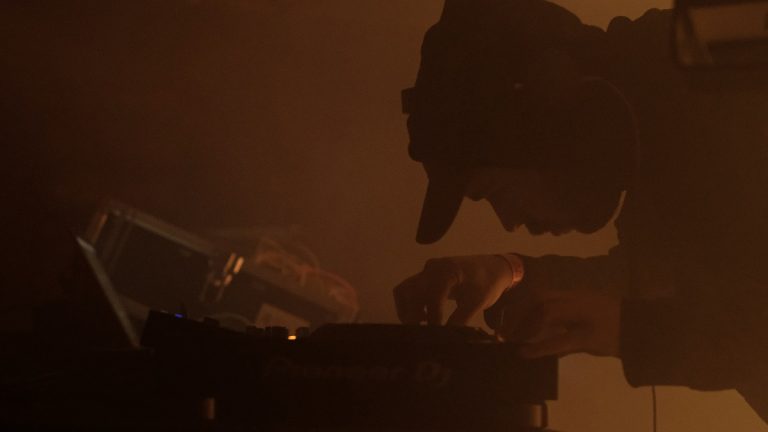Our series, “We are the night” presents artists, promoters, production managers, label owners and others who are bringing the music world of the Czech Republic forward, from the past to the present and the present to the future. This week we present an interview with producer, radio presenter, and sound designer Jan Macháček, aka Ancestral Vision, who runs the digital label Unizone. Photo credit: Ida Capova.
Brno, April 6 (BD) – A few days after the start of the Russian invasion in Ukraine, I came across the Unizone compilation online, and got so into it that I decided to meet with one of the leading members of the digital label, to learn more about his own path to music, the music he produces, and the 19 tracks from different artists that came together so quickly to support the Ukrainian people.
BD: So where do you come from?
I am not originally from Prague, I was born and raised in a small town, Litvínov, in the mountain area close to Germany. I think there are around 30,000 people living there, but it is getting less and less. The socio-economical context of the area is very complicated.
It was part of the Sudeten area, very industrial, but now there are fewer and fewer jobs and people are moving away. It seems like vicious circles and politicians are not really bringing any vision or hope. My hometown is slowly kind of dying, which is very painful for me to watch.
BD: Do you still go there?
Yes, my parents are there and some of my grandparents, so I still go there from time to time. I would not say I would love to live there at this time of my life, but it is very empowering for me in a spiritual way.
It is kind of a dark place to live, and growing up there gives you some lifetime damage. I have a complicated, but very strong emotional relationship towards this area. I would definitely not change where I‘m from.
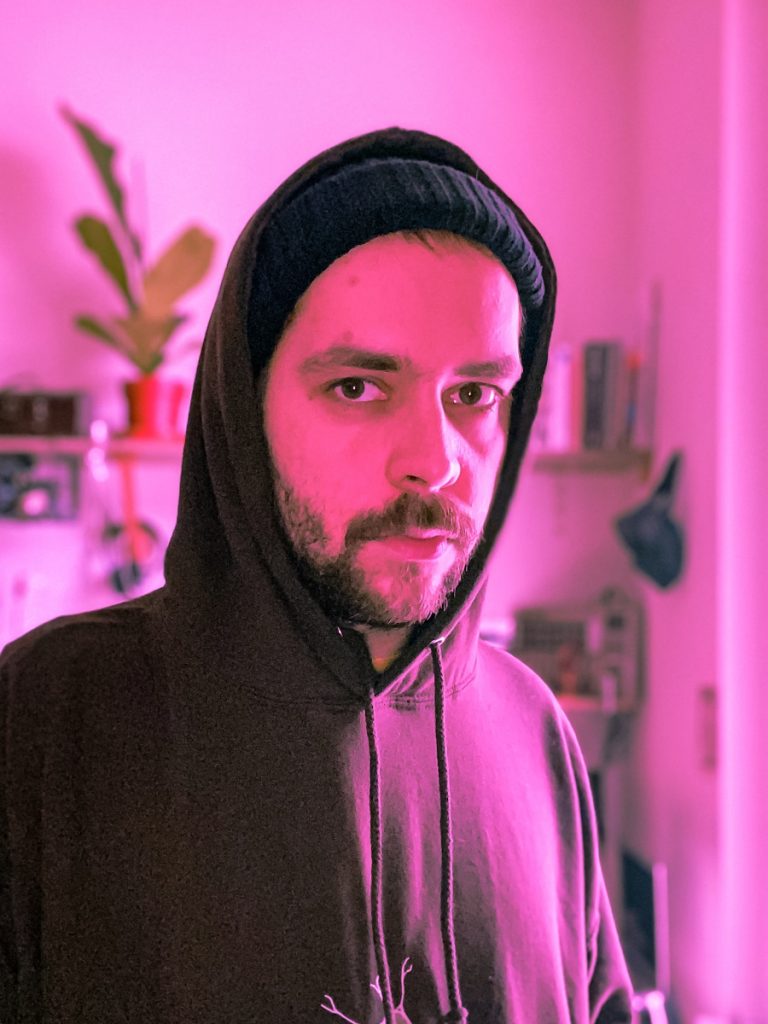
BD: When did you arrive in Prague?
My mother is from Prague, I have family here, so since childhood I have been coming to Prague to visit.
I started coming more during my high school, I was here every two weeks, because when you are a teenager with certain sorts of interests, it is entertaining to come here, with all that the capital had to offer.
After high school I started studying journalism. Fun fact: I was a music journalist. I studied for three years, it was a very practice-focused school but at the same time I was feeling I wanted to focus more on studying music, not journalism.
I was accepted to study Aesthetics at Charles University, but I did not like the vibe of the faculty and I left after one month. I also figured out I was not as intellectual as I thought, which was actually a kind of liberating feeling.
BD: What kind of music were you covering as a music journalist?
When I started writing about music it was more about indie rock, shoegaze, post-rock, and then I started to write more about electronic music.
I started listening to some acoustic hybrid projects like Apparat, and transitioning more and more to weirder sounds, and that is why I ended up where I am now.
BD: So what was the exact switch to become a producer?
Honestly the journalism and writing jobs were not paid well, and when you have to do six reviews a month, you are kind of using some patterns for articles, changing artist names but not really going deeper. That’s how I felt, so it made me stop writing about music. I felt like I had given everything I could to writing, and I wanted to try new stuff, to make music.
BD: So how did you start?
It was a very self-taught approach. Later when I became more comfortable with the tools I use, mainly Ableton, I went to some workshops. I have been a producer for six years now. I have purchased some gear over the years, but I still use the laptop keyboard and mouse as my main tools.
I did not have a real musical education. I have to say that my former town is very sport-based, so I spent my childhood until my late teen years doing a lot of sport, but then I started playing guitar, got a band, started slacking. Classic story.
The Internet also played a crucial part in this process. I‘m a huge Youtube tutorials nerd, and they really helped me establish some healthy self-confidence as a producer.
BD: How did you start to really get serious about music, doing gigs?
I started working in a place called Containall in 2015, it used to be close to Malostranska (now in Vinohrady). I was like an event/program manager. We had a DJ every second day, so I had an opportunity to see DJs often and I became naturally curious, annoying all my friends during their DJ sets with questions like: “And what does this knob do?” I played the last day I was working there with my best mate, it was a nice memory for something like my first DJing ever, even it had nothing to do with DJing seriously.
For me it is kind of funny to look back at what I was playing and listening to, because now I would say what I do is more experimental and brutal… it was much more chilled music at the time.
Then for two or three years I was just Djing but getting further from this kind of chilled house music into something more groovy, tribal stuff, deconstructed sounds.
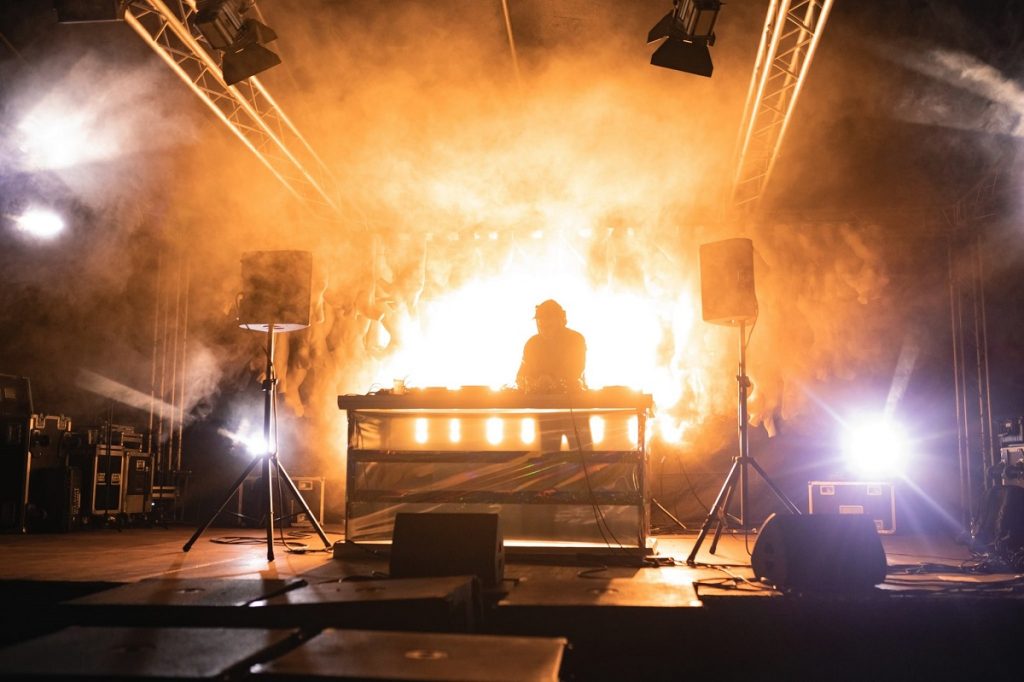
For some time, I was playing at exhibition openings, galleries, Sunday cafes at 2pm. I did not feel so good there and I am glad not to be doing that anymore. Honestly, I play to enjoy myself in the first place. Only after this I can send the energy into the crowd. I‘m not able to please the crowd if I don‘t enjoy what and where I‘m playing, but I guess a lot of DJs have it the same way.
Then I got some late bookings, I can play three times in a week and then not play for one month. It is not my source of income, but I try to deal with this passion very professionally.
BD: How did the Unizone label start?
I launched it with my friend Josef (notsureyet). We met in 2016 at an after party and we kind of knew each other, and we started talking about music and realized we had a lot in common around music, which does not happen to me often. At the time it was kind of niche music, we wanted to start organizing some music events like in NEONE (which no longer exists).
We were not the first to want to organize this kind of party in Prague, but we really wanted to do more of those. So Unizone basically started as a club night in 2017, we were always promoting in different places (Klub Famu, Neone) for two years, every two months…
We started to slow down, mainly due to financial issues. Let’s say, every event we ended up in the red or breaking even, but almost every time we had to pay to cover the fees, so it really was an issue.
I also wanted to focus personally on other things, as we had this radio show on Radio 1, focused on electronic music. And for me as I had my day job, I felt I had a limited amount of energy and I preferred to put it into something different, with longer lasting effect.
So, we came up with the label idea. The same day we started the show on Radio 1, we launched our first compilation called Dark Core Scale.
BD: How do you gather the artists for each compilation?
We started with people we knew. For the first compilation in 2018 for example, the large majority were people we knew, half of them locals and other half from abroad, people we invited to play in Prague, or we had met at other events.
It was actually a very good foundation for us because some of them already had a good reputation. The first compilation had very good feedback, and despite not knowing exactly which direction to take we just thought “let’s get on with it and see how it goes”.
Then for the second one, we got more contacts, more people, friends of friends etc., following a natural flow, and for the third one we approached artists, asking them if they wanted to do an EP with us.
Since then we have kept that basis – half of the people come to us, the other half we approach by ourselves.
It is a good balance, we are releasing more and more known producers and newcomers to the scene, with demos, debuts… It is also very refreshing, to combine well-known names and newcomers.
For example, going to work and receiving an email from someone saying, “I like your label, I want you to listen to my stuff”… So, you listen and after five minutes you are telling yourself, “This is sick, great tune!”
It is important to give something back to the scene, especially to producers who have a strong artistic vision of what they want to do. Now we are well-established in the internet community, so it really helps.
As an example, the last release we had, in January, was a kind of nice, advanced sound design by a Welsh-Italian producer, Miedo Total. I knew Alex from before, but it was him who contacted us.
It is all about what I would call that digital underground. I don’t feel that in my generation the underground was established in clubs, but much more in the digital space.
Of course, people are playing in clubs, but most things are happening online, and you know the online community is very strong and supportive, so basically, I knew a lot of people before they did anything with us. We just added each other on social media due to common interests, and then when things were flowing, we collaborated…
BD: More precisely, what happened when the conflict between Russia and Ukraine started? I want to know how you managed to act so fast [the compilation was released within one week of the start of the war] and how did things get organized?
It was very weird situation because for the first time me and my friends were, let’s say, spectators of such dramatic events, and we were shocked, even if it was in the air for months, but you know, between the threat and the real start of the war there is a kind of “what the f…”
So, I would say it was an intuitive reaction. The same day the invasion started we started to ask people around to know if they would be interested in collaborating quickly. Usually, we need several months for a compilation, but in this case, we focused on tracks that people had 90% finished.
Usually, curating is time and energy consuming, but in this case, we needed just a short period of time, because the idea was to raise some money, so I put a lot of time into it and didn’t sleep much that week. The energy of all the people involved, the producers and Petra Hermanová (artwork) and Wim Dehaen (mastering), was really strong.
We released it in less than one week.
BD: How did you choose the track list, and the order?
Originally it should have been a 10-track compilation, but Dmitrievna, who produced the first track, started a group chat to make a compilation the very next day after we did, so I told her that maybe it would make more sense to do it all together.
So we invited more people to get involved, even people I really did not know before, and I was glad that I could discover new artists due to that project.
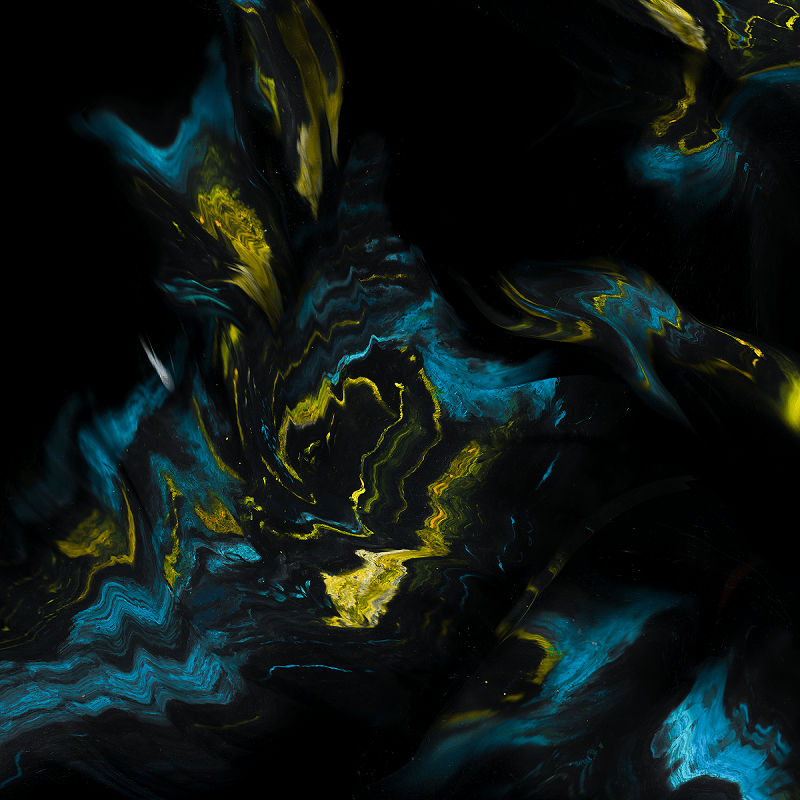
When we got the 19 tracks, I was listening through them, and I was like “they are great tracks, but it will be hard to make them work together, due to the difference in styles and bpm…”
After all, when I see how the compilation is now, I don’t understand how 19 tracks made separately by 19 different artists (all based in the Czech Republic) achieved such a result together.
BD: How was it put together?
It was my wish to order it well, you have that first song which gets your attention into the compilation straight away, very dark and powerful.
And then the rest came naturally. This compilation really has something special, a kind of magic. I think it is a kind of coincidence that we could not even reproduce if we wanted to…
BD: What was the feedback? How was it received?
We don’t usually get a lot of attention from Czech media, but in this case we received good feedback and coverage.
I was thinking for a short time that maybe it is not good to release it on our own digital label, because I did not want to be perceived as profiting from that context to release a compilation, but in the end, I told myself that we have a strong community on Bandcamp, so it would be stupid not to use it for the purpose of fundraising.
BD: What do you see as the next steps to support Ukraine?
The wave of solidarity is now high, and I hope it will remain. I am surprised, but in my opinion, it is caused by three things. First the fact that we have that history with the Soviet invasion (1968), second the fact that Ukrainians are I think the third biggest community in the Czech Republic, and third that I think Czech society has always been kind of anti-Russian, and a lot of my Russian friends living here have those kinds of experiences.
BD: How can we help Ukrainian artists, who were part of a really vibrant new electronic scene before the war?
We don’t have the capacity to cover everything. We can support them with funds, try to invite them, try to put them in the light. For example, John Object, a producer living in Ukraine, is really showing how their life has been totally switched, as now he will be drafted by the army, so it is important to notice that and show that reality to others, maybe they will not be in music so much anymore…
BD: Ok, last question, a lighter one. Can you tell me about the tour collaboration with Oliver Torr for the production of one song on the album from Katarzia?
Oliver and I have a lot of common taste in music, and we are also friends. We have a lot of nerdy chats about designs, plugins, and we are working on a more long-term project together.
As he is the main producer of that album, probably her most experimental one, Oliver asked me if I wanted to do work on two tracks, but in the end, we only had time for one.
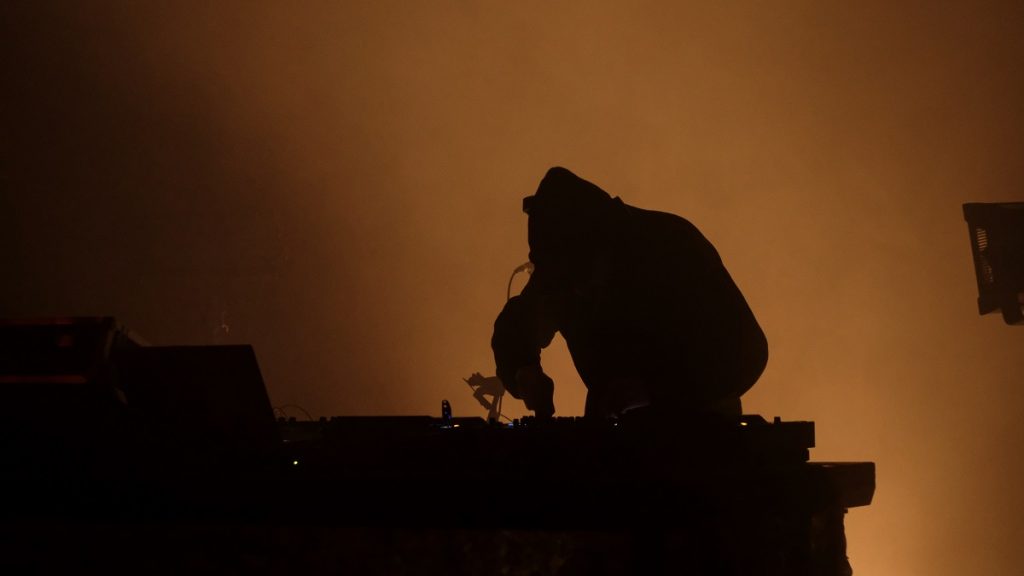
Her previous album was already a switch, but from my perspective the new one is much more experimental. The whole process to finish the album was fast, so they had some deadline to end it, so I received the basics of the track.
Oliver sent it to me and told me I can do whatever I want with it, so I worked on it.
He encouraged me to cut, to dig more into it, we met in the studio to polish the song and finalize it. It was funny because when I met Katarina (katarzia) we realized we knew each other but she didn’t know I was producing music. In the end she was happy with the result.
It was a great experience honestly; I know the flow of Oliver’s work, so it was easy to adapt.
BD: What are your next steps?
I am working slowly on my live set for future events, and I am working on an EP, for a long time, which I hope will be done soon. It will step aside from clubby sounds for this release, I feel it‘s the right thing for me to do now.
I have been very busy lately and it is taking more time than I would like to, but I am looking forward to getting some rest and starting work on it again.
Ancestral Vision recommends…
Erika de Casier – Busy [4AD]
Goddess! I don‘t understand how I could have lived before discovering Erika. Go to her gig in Meet Factory on May 6th!
Max Dahlhaus – Stymied Cycle [forthcoming on Unizone]
A track from the forthcoming EP on our label, most likely in May. I can‘t stop listening to this banger, can‘t wait to share it with you all!
dj bingo – maybe it’s a ghost or maybe it’s just a draft [Sirens]
Johannes is one of the most talented Czech producers I know. His track “Semínko krajiny”, released under his former moniker Ninja Priest, is seriously one of the my most beloved tracks ever. Go check his new EP released on Mannheim based label Sirens.
Links
4UA (compilation for Ukraine)
Unizone on Soundcloud, Bandcamp, Instagram, and Facebook.
Ancestral Vision on Soundcloud, Bandcamp, Instagram, and Facebook.



